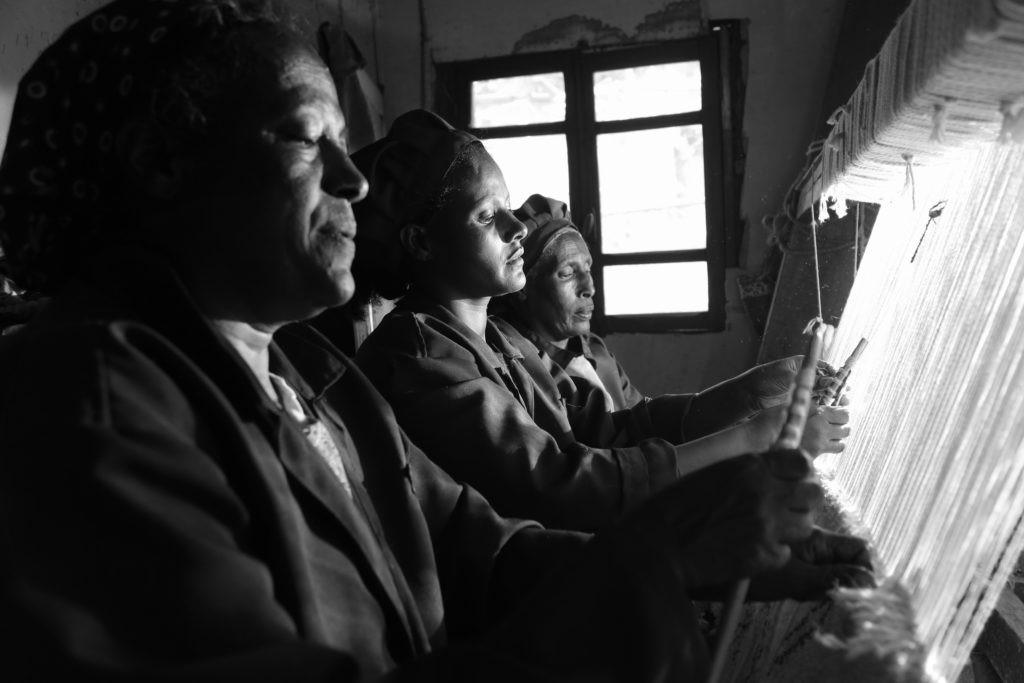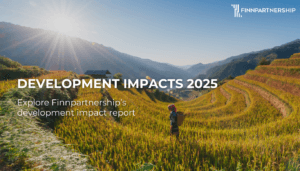Finnish company turned defeat into victory in Ethiopia

The designer rug manufacturer Sera Helsinki’s start in Ethiopia was difficult but the persistent entrepreneurs turned defeat into victory.
Sera Helsinki Oy’s rugs, made in Ethiopia, received a lot of positive attention at the Habitare Fair in the autumn after the association for interior design journalists (Sisustustoimittajat ry) chose the company’s products as one of the 12 most interesting new products in Finland. Entrepreneur Anna Suoheimo says that Sera Helsinki’s products combine Finnish design with Ethiopian women’s craftsmanship. “We make design products in Ethiopia that appeal to western consumers,” Suoheimo summarises. Quality is an important competitive factor for Sera Helsinki. The company emphasises quality in the Ethiopian weavers’ training for which it has been granted Finnpartnership’s business partnership support.
Work and better salaries for women
The company, founded by the entrepreneur duo, Anna Suoheimo and Hanna Puharinen, is now doing well, but the early days in Ethiopia were not easy. Suoheimo says that the idea for importing Ethiopian crafts to Finland came about when she lived in Ethiopia with her family. “I was really impressed by the woollen rugs the local women wove. Everyone in Finland also liked the rugs when I brought them back as gifts.” Suoheimo and Puharinen’s idea from the start was to run a business, which would improve the status of Ethiopian women and pay the weavers higher than average salary for their work. They designed a rug collection that would please the Nordic eye and found weavers in the Ethiopian capital, Addis Abeba. “The idea was that we would buy the rugs and pay extra bonuses directly to the women who weave them.”
Challenges in finding a reliable partner
However, gradually it was revealed to them that the weaving mill’s director did not respect employee rights. Salaries and pensions were at times not paid. Working conditions left a lot to be desired. “We pointed out the flaws but things didn’t improve. It turned out that the poor treatment of employees was not due to indifference, but a conscious wish to oppress women,” Suoheimo says. Suoheimo and Puharinen decided to look for new partners through Ethiopian NGOs. That cooperation ended with disappointment too, because the organisations’ operations proved to be riddled with corruption and reckless spending. “In a poor country, such as Ethiopia, the most challenging thing is to find a reliable cooperation partner,” Suoheimo remarks.
Sera Helsinki needed a local partner in Ethiopia, because a foreign entrepreneur would have needed a business licence to found a business. They would have had to invest at least 250,000 US dollars in the country to get the licence. “As a small company, we naturally could not afford it,” Suoheimo says. In the end, the solution was closer than expected. Suoheimo family’s chauffeur and interpreter, Abraham Hailemariam, had closely followed the difficulties Sera Helsinki was faced with at the start. He was prepared to found a company that would start manufacturing the rugs.
Jobs for the poverty-stricken countryside
The new weaving mill is now up and running. The majority of its employees are experienced weavers with whom Sera Helsinki has cooperated for a long time. Sera Helsinki also buys rugs from two other weaving mills, which employ disabled people in Ethiopia. The weaving mills receive support from the Threshold Association and the Abilis Foundation, both of which work to promote the position of people with disabilities. “We currently employ 50 women in Ethiopia. 30 of them are visually impaired.” Now Sera Helsinki has started developing the production of the wool yarn required for the rugs. In the future, most of the sheep wool will be collected and spun into yarn in the Kombolcha area, 350 kilometres northeast from Addis Abeba. “The Ethiopian countryside is even poorer than the cities. It would be important to create jobs there, so people would not have to leave their home region.”
Suoheimo expects that the attention the company received at the Habitare Fair will give Sera Helsinki an extra boost. The company sells its products through its online shop, but the aim is to also find retailers in Finland for the rugs. The company also wants to expand the network to the rest of Europe and Japan. The Nordic market is of special interest. “Rugs are currently our main product. But the product selection also includes towels, which we buy from another Ethiopian company.”
Share on social media


